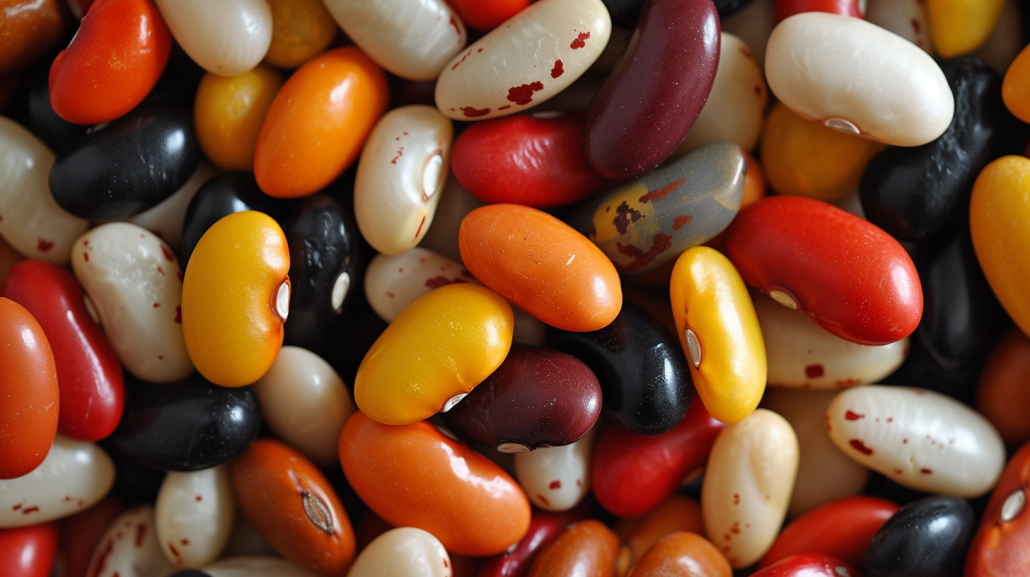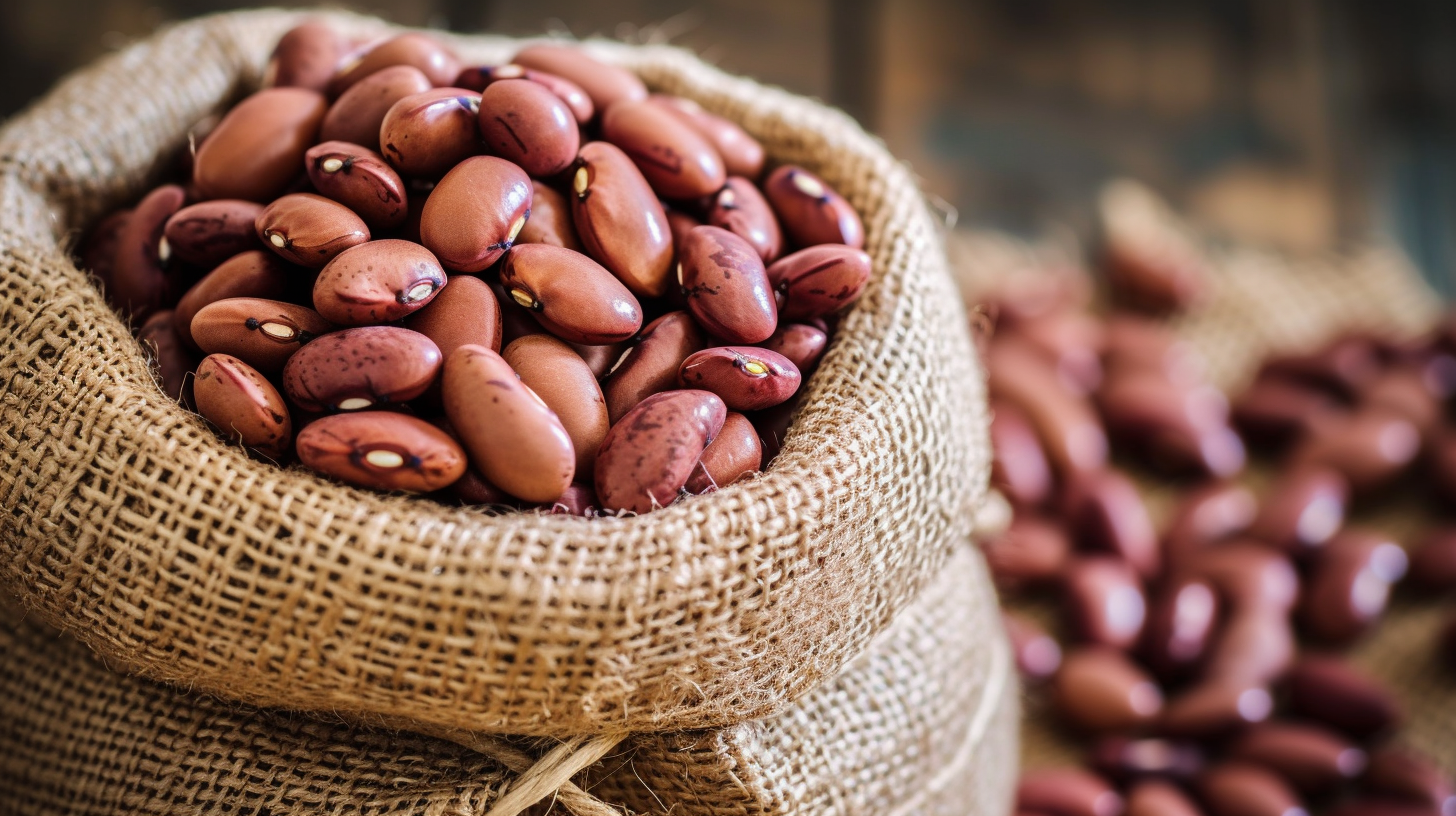Imagine you’ve been eyeing the bean section more than usual during your grocery trips lately. You’re not alone if you’ve found yourself craving beans out of the blue.
Beans aren’t just a staple in many diets around the world; they’re also packed with nutrients that your body might be signaling it needs, from proteins and fibers to vitamins and minerals. But why beans, specifically?
It’s not just about the nutritional punch they pack; your cravings could be hinting at more, such as changes in your dietary needs, emotional states, or even shifts in your health and wellness routines.
Key Takeaways
- Nutritional deficiencies, hormonal shifts, psychological factors, and culinary preferences can all contribute to cravings for beans.
- Beans are a nutrient-dense food that can provide essential nutrients, stabilize blood sugar levels, boost the immune system, and support energy levels during hormonal shifts.
- Mindful eating, maintaining a balanced diet, managing stress, and incorporating protein-rich foods can help curb cravings for beans.
- Listening to your body, paying attention to hunger and fullness signals, and practicing self-care and self-compassion in relation to food choices are important in managing cravings for beans.
Nutritional Deficiencies
Nutritional deficiencies can trigger specific food cravings, including a strong desire for beans.
When you’re lacking in essential nutrients like iron, protein, B vitamins, and potassium, your body might start nudging you towards foods that can fill these gaps.
Beans are a powerhouse of nutrition, packed with not only the nutrients you’re missing but also high folate content, vitamin C, omega-3 fatty acids, and fiber.
So, if you find yourself with an unstoppable craving for beans, it’s likely your body’s way of signaling a need to replenish these vital nutrients.
Protein and carbohydrate deficiencies, in particular, can lead to cravings for beans.
These macronutrients are fundamental for energy and muscle repair, and beans offer a rich source of both.
Hormonal shifts, such as those experienced during menstruation or pregnancy, might increase your cravings for beans.
These periods demand higher nutritional intake, and beans can be a go-to source for meeting these needs, thanks to their nutrient-dense profile.
Cravings for beans can also point to more specific nutrient deficiencies, like phosphorus, a mineral essential for bone health and energy production.
Beans, with their comprehensive nutrient profile, can help address these gaps.

Psychological Factors
Your craving for beans mightn’t just stem from your body’s needs but also from your mind’s desires, influenced by psychological factors like stress and emotional state.
When you’re feeling down or overwhelmed, you might find yourself craving beans not only for their nutritional value but also as a means of seeking comfort.
Your mind seeks pleasurable experiences to counteract negative feelings, and food, especially those linked to positive memories or feelings, can provide that.
Psychological factors play a significant role in what and why you crave certain foods.
For instance, cravings for beans can be tied to pleasurable memories of family meals or the comfort of a warm, hearty dish.
It’s not just about the beans themselves but what they represent on an emotional level.
Similarly, hormonal changes, such as those during menstruation or pregnancy, can influence your cravings, highlighting how closely connected your psychological state is to your food desires.
Health and Wellness

While psychological factors significantly influence food cravings, it’s also vital to consider how beans contribute to overall health and wellness.
Beans aren’t just a staple in various cuisines around the world; they’re packed with nutritional value that can boost your health in several ways.
If you find yourself craving beans, it might be your body’s way of signaling a need for their numerous health benefits.
Beans are an excellent source of protein, essential for muscle repair and growth, especially if you lead a sedentary lifestyle or follow a restrictive diet.
They’re also rich in carbohydrates, providing you with the energy needed to get through your day.
Beans contain vitamins C and K, potassium, and fiber, all crucial for maintaining a healthy body.
The fiber in beans can help keep your digestive system running smoothly, while potassium supports heart health.
Beans have a low glycemic index, meaning they can help stabilize your blood sugar levels, making them an ideal choice for individuals looking to manage their energy levels throughout the day.
This is particularly beneficial for those experiencing hormonal shifts, such as during menstruation or pregnancy, when the body’s need for carbs and iron increases.
Eating beans can also aid in boosting your immune system thanks to their vitamin and mineral content.

Culinary Preferences
Exploring the realm of culinary preferences, it’s essential to acknowledge how much individual tastes and experiences shape what we enjoy eating.
When you’re craving beans, your culinary preferences might be influenced by a variety of factors that interact with your taste buds in unique ways.
Individual Taste and Experiences
- Your craving for beans might stem from your personal enjoyment of their texture and earthy flavor.
- Perhaps your upbringing introduced you to a wide variety of beans, making them a comfort food now.
Cultural Background and Upbringing
- The types of beans you crave, whether it’s white beans drizzled with olive oil or a hearty bean stew, could be deeply rooted in your cultural background.
- Family recipes and traditional dishes play a significant role in shaping your preference for certain beans over others.
Furthermore, your culinary preferences can change over time as you’re exposed to new cuisines and combinations.
Maybe once you preferred the simplicity of white beans with olive oil, but now you find yourself seeking out more complex bean dishes with a variety of textures and flavors.
Personal health goals and dietary restrictions can also impact your cravings.
If you’re aiming for a diet rich in plant-based proteins, beans might become a more appealing option.
Social and environmental factors, such as dining with friends who are vegetarian or concerns about sustainability, may further influence your preference for beans.
Your craving for beans reflects a complex interplay of factors that make up your unique culinary preferences.
Managing Cravings

Cravings, especially for nutrient-rich foods like beans, can often signal your body’s needs, but managing them requires a balanced approach.
When you’re finding yourself craving beans, it’s essential to consider why.
Beans are not only a source of protein but also help fight oxidative stress, making them a healthy snack choice. Yet, it’s crucial to balance your diet and not overindulge.
Being mindful of your caloric intake is key when managing cravings.
Although you might crave certain foods like beans when your body needs energy, ensuring you’re consuming the correct number of calories for your lifestyle is important.
Beans can provide a significant calorie boost, so pairing them with other nutrient-dense foods can help maintain a balanced diet.
Stress and emotional states often trigger specific food cravings. Learning to identify and manage these feelings can help you control the urge to eat beans every time you’re stressed.
Instead, finding alternative ways to cope, such as exercise or meditation, might reduce these cravings.
| Strategy | Benefit |
|---|---|
| Mindful Eating | Ensures correct calorie intake |
| Balanced Diet | Addresses nutrient deficiencies, reduces cravings |
| Stress Management | Reduces emotional eating, promotes healthy choices |
Conclusion
In conclusion, your craving for beans likely stems from a mix of nutritional needs, psychological influences, and personal tastes.
Whether your body’s signaling a lack of calories, protein, or carbs, or you’re simply enjoying the comfort they bring during hormonal shifts, beans offer a satisfying solution.
Embrace your cravings as a sign to explore diverse culinary preferences, ensuring you’re nourishing your body and soul.
Managing these cravings means understanding and responding to your body’s signals for health and wellness.